LEE YONG-SOO MEETS WITH FOREIGN MINISTER
입력 2021.03.04 (15:28)
수정 2021.03.04 (16:48)
읽어주기 기능은 크롬기반의
브라우저에서만 사용하실 수 있습니다.
[Anchor Lead]
Lee Yong-soo, a victim of Japanese wartime sexual slavery and a women's rights activist, has met with Foreign Minister Chung Eui-yong. She demanded that the issue of wartime sex slaves be brought to the International Court of Justice. However, the government maintains a cautious stance on the matter while pledging to do its best.
[Pkg]
[Soundbite] "Hello. Welcome."
Lee Yong-soo, a victim of Japanese wartime sexual slavery and a women's rights activist, has met with Foreign Minister Chung Eui-yong. At a meeting that lasted about an hour, Lee said the issue of wartime sexual slavery must be brought to the International Court of Justice as soon as possible, emphasizing a sense of urgency. She asked the foreign minister to let her meet with the president personally to persuade him.
[Soundbite] Lee Yong-soo(Victim of Japan's wartime sexual slavery) : "The right decision must be reached on Japan's wrongdoing. I cannot emphasize enough the importance of receiving an apology from Japan."
The Ministry of Foreign Affairs says Chung Eui-yong expressed gratitude to Lee for her efforts to repeatedly bring to light the so-called "comfort women" issue. However, the minister showed a cautious stance on bringing the matter to the international court.
The government is apparently concerned about whether the move is worth trying. The ICJ can begin trials only when both countries respond. Chances that Japan will agree are extremely slim. Japan believes the issue was settled long ago with the conclusion of agreements in 1965 and 2015. Therefore, bringing the matter to the international court would contradict Tokyo's stance.
If Japan does agree to an ICJ trial, it will likely include other issues of bilateral concern as well, such as the territorial dispute over the Dokdo islets and the Korean court's verdict ordering Japanese companies to compensate the victims of wartime forced labor.
The government believes that even if Japan's wartime crimes are exposed internationally solely through the issue of comfort women, the ICJ could rule that the issue of compensation to individual victims had been already settled through the agreements.
The Ministry of Foreign Affairs has pledged to continue to work with the victims to work towards a solution.
Lee Yong-soo, a victim of Japanese wartime sexual slavery and a women's rights activist, has met with Foreign Minister Chung Eui-yong. She demanded that the issue of wartime sex slaves be brought to the International Court of Justice. However, the government maintains a cautious stance on the matter while pledging to do its best.
[Pkg]
[Soundbite] "Hello. Welcome."
Lee Yong-soo, a victim of Japanese wartime sexual slavery and a women's rights activist, has met with Foreign Minister Chung Eui-yong. At a meeting that lasted about an hour, Lee said the issue of wartime sexual slavery must be brought to the International Court of Justice as soon as possible, emphasizing a sense of urgency. She asked the foreign minister to let her meet with the president personally to persuade him.
[Soundbite] Lee Yong-soo(Victim of Japan's wartime sexual slavery) : "The right decision must be reached on Japan's wrongdoing. I cannot emphasize enough the importance of receiving an apology from Japan."
The Ministry of Foreign Affairs says Chung Eui-yong expressed gratitude to Lee for her efforts to repeatedly bring to light the so-called "comfort women" issue. However, the minister showed a cautious stance on bringing the matter to the international court.
The government is apparently concerned about whether the move is worth trying. The ICJ can begin trials only when both countries respond. Chances that Japan will agree are extremely slim. Japan believes the issue was settled long ago with the conclusion of agreements in 1965 and 2015. Therefore, bringing the matter to the international court would contradict Tokyo's stance.
If Japan does agree to an ICJ trial, it will likely include other issues of bilateral concern as well, such as the territorial dispute over the Dokdo islets and the Korean court's verdict ordering Japanese companies to compensate the victims of wartime forced labor.
The government believes that even if Japan's wartime crimes are exposed internationally solely through the issue of comfort women, the ICJ could rule that the issue of compensation to individual victims had been already settled through the agreements.
The Ministry of Foreign Affairs has pledged to continue to work with the victims to work towards a solution.
■ 제보하기
▷ 카카오톡 : 'KBS제보' 검색, 채널 추가
▷ 전화 : 02-781-1234, 4444
▷ 이메일 : kbs1234@kbs.co.kr
▷ 유튜브, 네이버, 카카오에서도 KBS뉴스를 구독해주세요!
- LEE YONG-SOO MEETS WITH FOREIGN MINISTER
-
- 입력 2021-03-04 15:28:28
- 수정2021-03-04 16:48:56
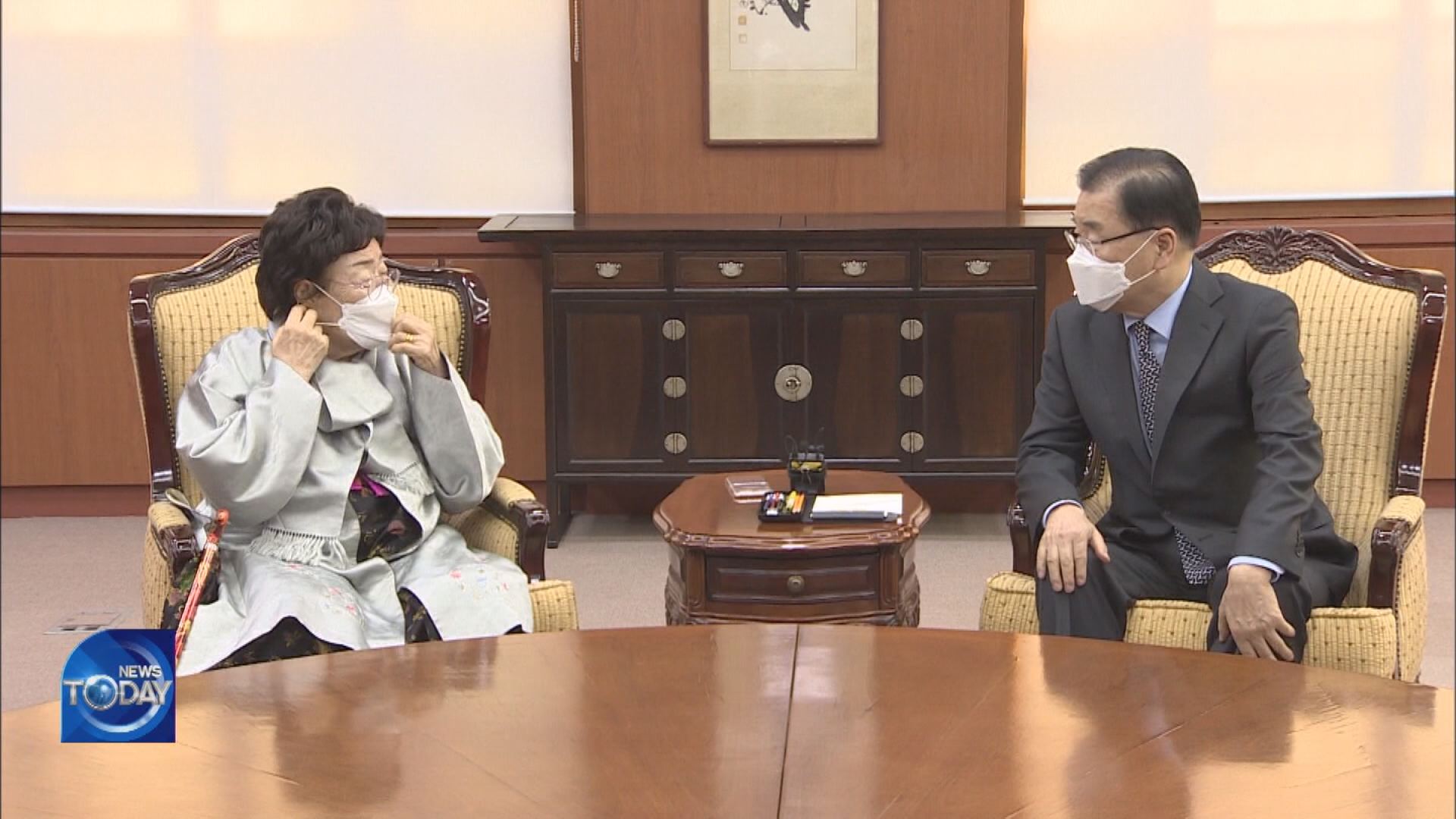
[Anchor Lead]
Lee Yong-soo, a victim of Japanese wartime sexual slavery and a women's rights activist, has met with Foreign Minister Chung Eui-yong. She demanded that the issue of wartime sex slaves be brought to the International Court of Justice. However, the government maintains a cautious stance on the matter while pledging to do its best.
[Pkg]
[Soundbite] "Hello. Welcome."
Lee Yong-soo, a victim of Japanese wartime sexual slavery and a women's rights activist, has met with Foreign Minister Chung Eui-yong. At a meeting that lasted about an hour, Lee said the issue of wartime sexual slavery must be brought to the International Court of Justice as soon as possible, emphasizing a sense of urgency. She asked the foreign minister to let her meet with the president personally to persuade him.
[Soundbite] Lee Yong-soo(Victim of Japan's wartime sexual slavery) : "The right decision must be reached on Japan's wrongdoing. I cannot emphasize enough the importance of receiving an apology from Japan."
The Ministry of Foreign Affairs says Chung Eui-yong expressed gratitude to Lee for her efforts to repeatedly bring to light the so-called "comfort women" issue. However, the minister showed a cautious stance on bringing the matter to the international court.
The government is apparently concerned about whether the move is worth trying. The ICJ can begin trials only when both countries respond. Chances that Japan will agree are extremely slim. Japan believes the issue was settled long ago with the conclusion of agreements in 1965 and 2015. Therefore, bringing the matter to the international court would contradict Tokyo's stance.
If Japan does agree to an ICJ trial, it will likely include other issues of bilateral concern as well, such as the territorial dispute over the Dokdo islets and the Korean court's verdict ordering Japanese companies to compensate the victims of wartime forced labor.
The government believes that even if Japan's wartime crimes are exposed internationally solely through the issue of comfort women, the ICJ could rule that the issue of compensation to individual victims had been already settled through the agreements.
The Ministry of Foreign Affairs has pledged to continue to work with the victims to work towards a solution.
Lee Yong-soo, a victim of Japanese wartime sexual slavery and a women's rights activist, has met with Foreign Minister Chung Eui-yong. She demanded that the issue of wartime sex slaves be brought to the International Court of Justice. However, the government maintains a cautious stance on the matter while pledging to do its best.
[Pkg]
[Soundbite] "Hello. Welcome."
Lee Yong-soo, a victim of Japanese wartime sexual slavery and a women's rights activist, has met with Foreign Minister Chung Eui-yong. At a meeting that lasted about an hour, Lee said the issue of wartime sexual slavery must be brought to the International Court of Justice as soon as possible, emphasizing a sense of urgency. She asked the foreign minister to let her meet with the president personally to persuade him.
[Soundbite] Lee Yong-soo(Victim of Japan's wartime sexual slavery) : "The right decision must be reached on Japan's wrongdoing. I cannot emphasize enough the importance of receiving an apology from Japan."
The Ministry of Foreign Affairs says Chung Eui-yong expressed gratitude to Lee for her efforts to repeatedly bring to light the so-called "comfort women" issue. However, the minister showed a cautious stance on bringing the matter to the international court.
The government is apparently concerned about whether the move is worth trying. The ICJ can begin trials only when both countries respond. Chances that Japan will agree are extremely slim. Japan believes the issue was settled long ago with the conclusion of agreements in 1965 and 2015. Therefore, bringing the matter to the international court would contradict Tokyo's stance.
If Japan does agree to an ICJ trial, it will likely include other issues of bilateral concern as well, such as the territorial dispute over the Dokdo islets and the Korean court's verdict ordering Japanese companies to compensate the victims of wartime forced labor.
The government believes that even if Japan's wartime crimes are exposed internationally solely through the issue of comfort women, the ICJ could rule that the issue of compensation to individual victims had been already settled through the agreements.
The Ministry of Foreign Affairs has pledged to continue to work with the victims to work towards a solution.
이 기사가 좋으셨다면
-
좋아요
0
-
응원해요
0
-
후속 원해요
0










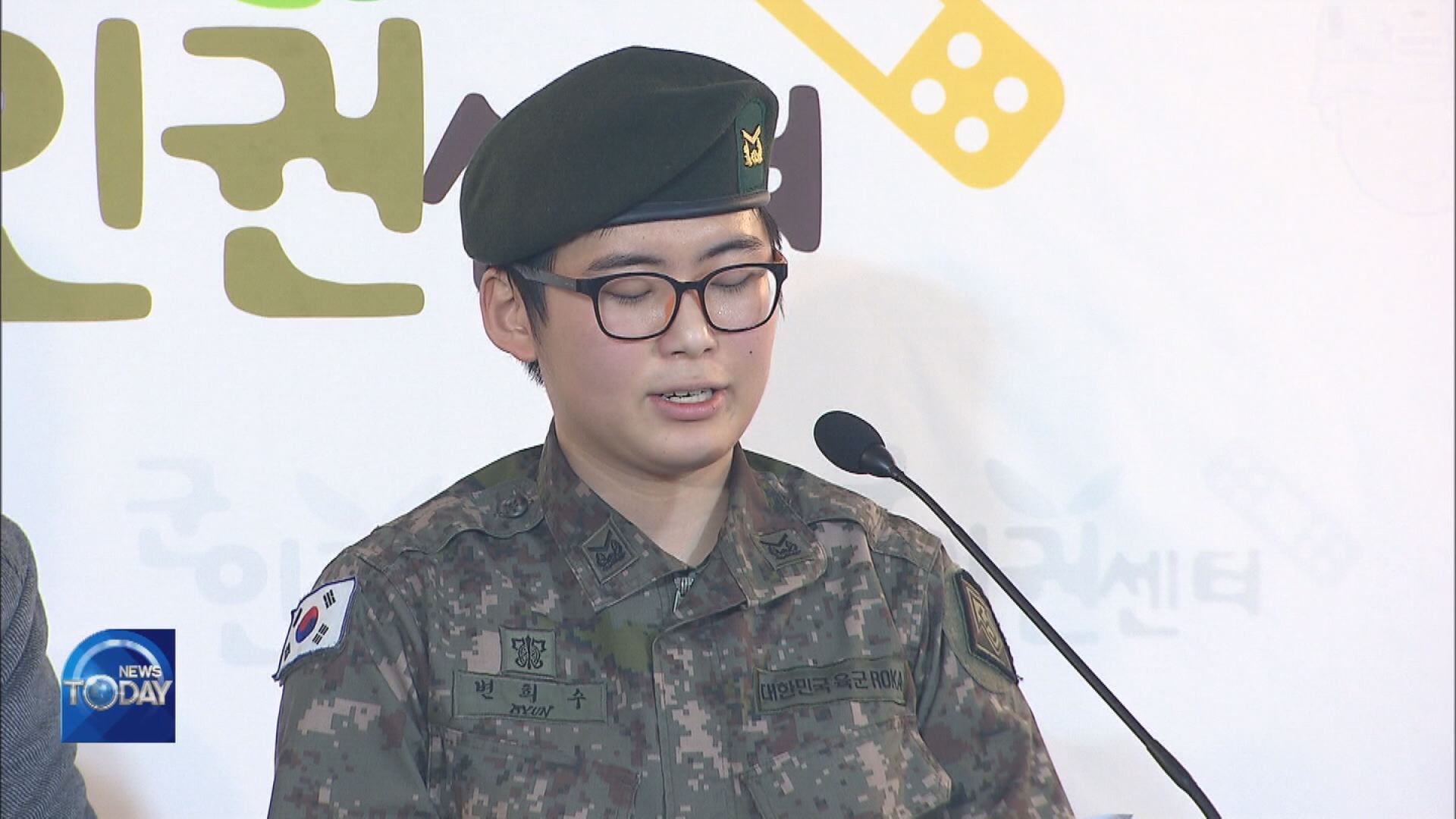

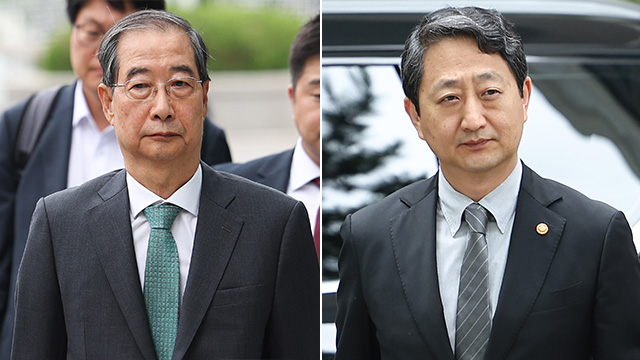
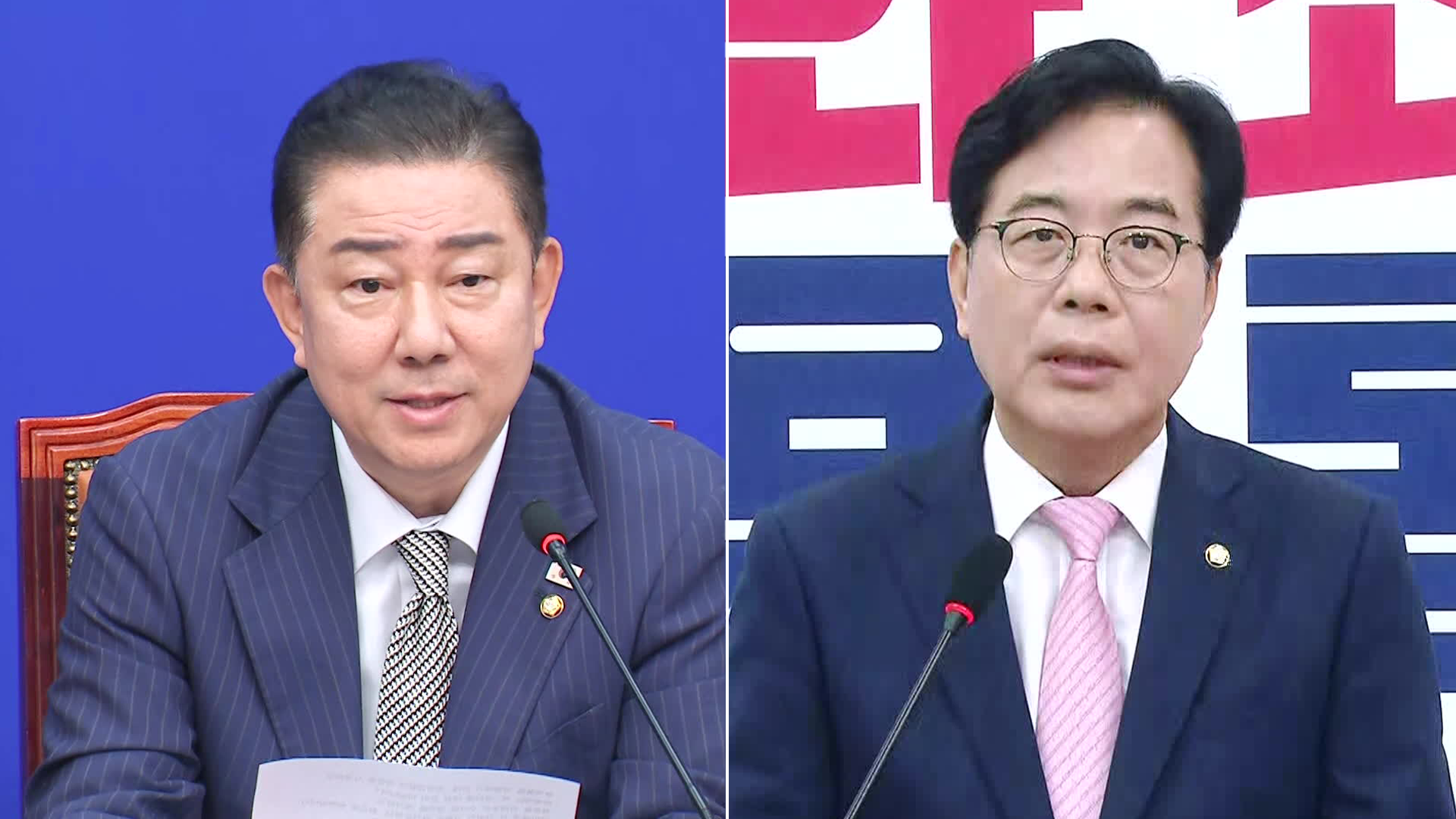

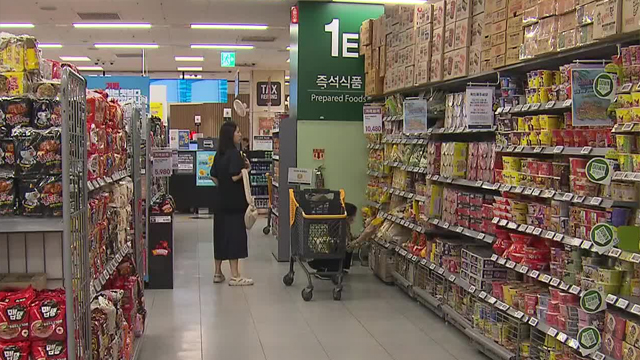

이 기사에 대한 의견을 남겨주세요.